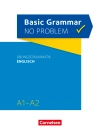In ‘The Verbalist, ‘ Alfred Ayres presents a compelling and thorough exploration of the English language, aiming to cultivate precision and elegance in communication. This work, published in the late 19th century, exemplifies Ayres’ dedication to language as an art form. It offers readers intricate discussions on the nuances of words, grammar, and usage, underscoring the importance of clarity and style in both spoken and written discourse. The book serves as a guide that intertwines a didactic approach with a rich, engaging literary style, reflective of the period’s heightened sensitivity to language and literacy. Alfred Ayres, a prominent figure in the realm of linguistic study, was influenced by the cultural education movements of his time, which emphasized the mastery of language as vital for personal and societal progress. His experiences as a teacher and editor informed his beliefs about the transformative power of well-executed language. Ayres sought not only to instruct but also to elevate the understanding of language’s beauty and complexity, making ‘The Verbalist’ a valuable tool for both learners and seasoned writers alike. I recommend ‘The Verbalist’ to anyone who seeks to refine their command of the English language. Its insightful guidance and attention to detail will benefit aspiring writers, students, and language enthusiasts in their quest for eloquence. Ayres’ work is not merely instructional; it is a celebration of language that encourages readers to appreciate and improve their verbal craft.
Giới thiệu về tác giả
Alfred Ayres is the pseudonym of Thomas Embly Osmun, a notable figure in the landscape of American English grammar and elocution whose work gained prominence towards the end of the 19th century. His seminal book, ‘The Verbalist’, is a prescriptive guide that delves into the intricacies of the proper use of English, with keen insights into word choice, pronunciation, and usage. ‘The Verbalist’ is often regarded as a companion piece to his earlier work, ‘The Orthoëpist’ (1880), which focuses on the correct pronunciation of words. Ayres’s literary style is characterized by its didactic tone, aimed at the refinement and education of the American reading public. His writings have been utilized as valuable resources by both educators and linguists for their practical approach to the nuances of English language. Despite the evolution of language norms since his time, Ayres’s influence lingers in contemporary discussions of language propriety and pedagogy. While many modern scholars argue the inevitability of linguistic evolution, Ayres’s work is still valued for its historical significance and its role in shaping the perspectives of late 19th-century American English users.












